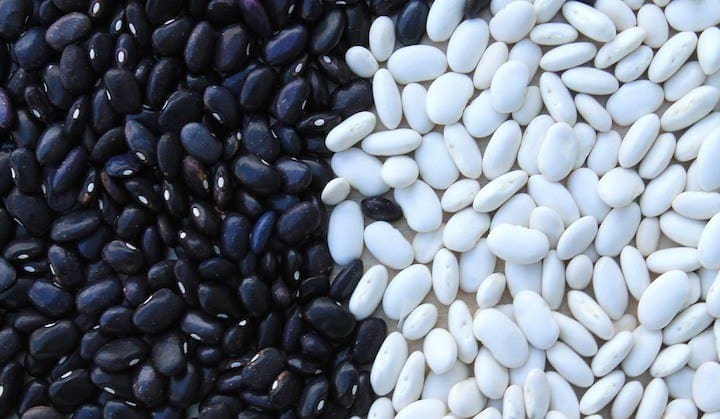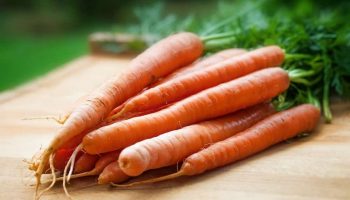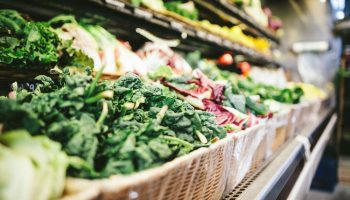No – you can’t have beans on Whole30.
Beans (black beans, navy beans, kidney beans etc.) are part of the legume family and legumes of any kind are not allowed on Whole30.
There are exceptions, however! Don’t worry. We’ll get to that later.
But beans are so healthy! …Right? Well, there’s a lot of debate on these little guys. Technically, beans are seeds very similar to grains, which also happen to be non-compliant on this program.
Beans are little powerhouses of carbohydrate energy intended to sprout and fuel the baby bean plant through its first stages of life. While this may sound great at first—we could all use a bit of extra energy—there are a few different factors that deem beans inadvisable to consume when you’re trying to reset your digestive system.
Seeds have evolved to withstand a whole lot in order to survive natural selection. Most can’t travel all that far without help, therefore many beans’ outer shells have special properties that help them remain intact throughout consumption, digestion, and elimination from an animal. That’s one way to travel, right?
That also means, however, that beans are bred to be tough—perhaps a little too tough for our digestive enzymes to even break down and extract much nutritional value from at all.
Another big reason beans aren’t allowed on Whole30 is because of phytates, anti-nutrients that grab on to healthy minerals like copper, zinc, magnesium, and iron in the legumes we eat and make them almost entirely unavailable to our bodies. Because of this, all those goodies that the nutritional label on the box of dried black beans promised might not even make it into our systems anyway.
But what if I’m a vegetarian and beans are my main source of protein?
Well, beans aren’t actually that great of a protein source after all. Most legumes are much denser sources of carbs than protein anyway. Remember how they’re seeds intended to provide food for plants to grow? They’re pure energy! We’d recommend turning to eggs for a vegetarian protein source instead.
As promised, there are some exceptions! When it comes to eating beans on the Whole30 program, certain ones like green beans, sugar snap peas, and snow peas are allowed.
This is because while they do contain the little seeds within their stalk, the entire outer shell is edible and makes up the majority of the vegetable. Since the stalk does not contain the same anti-nutritive properties that the beans themselves do, these kinds of ‘beans’ pass the Whole30 test!
Still lost on how to be bean-less? Think parsnips, carrots, and sweet potatoes as a good hearty starch substitute. Check out our collection of Whole30-friendly chili recipes that won’t have you missing the beans one bit!




